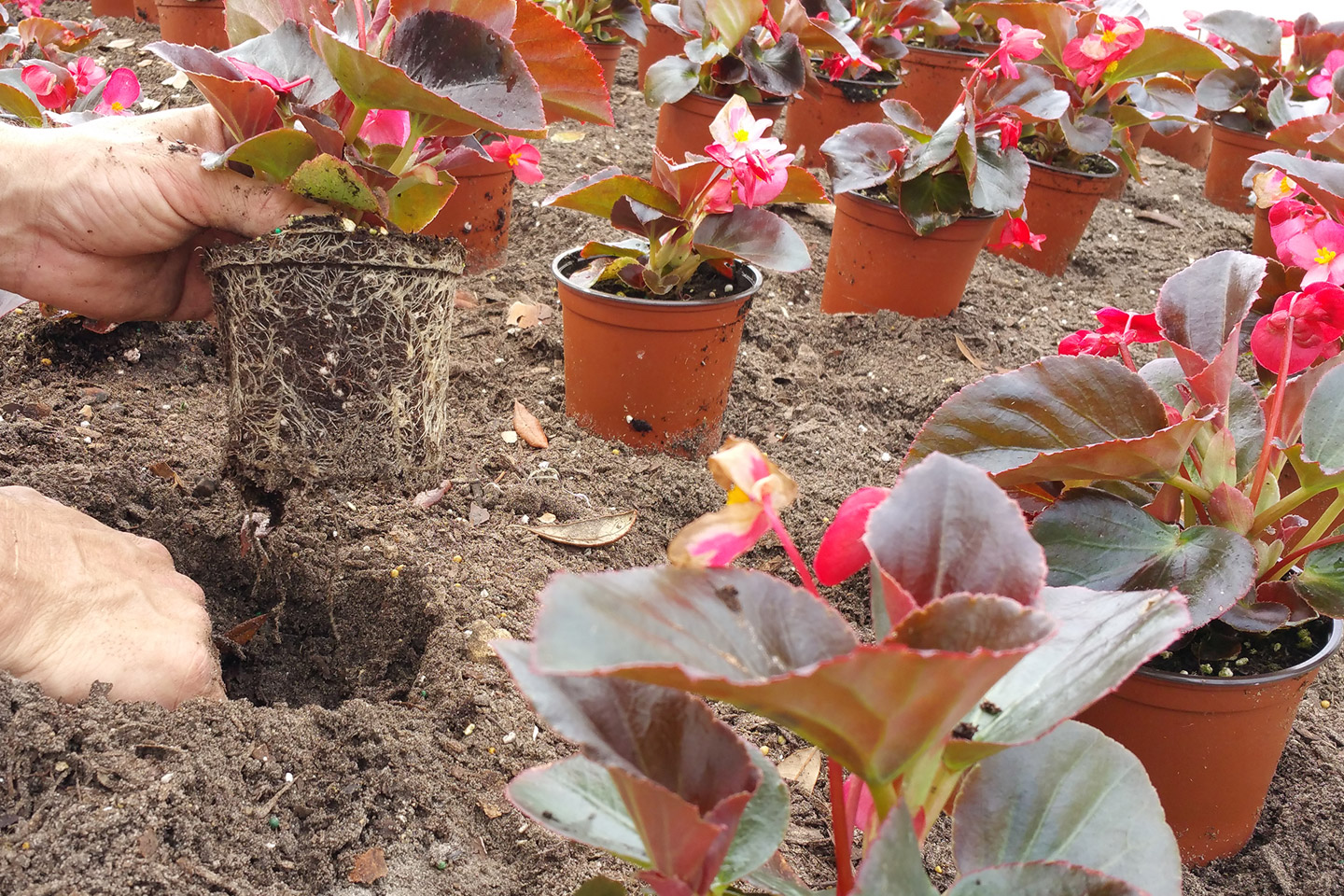Harnessing Natures Defenders - The Vital Role of Predatory Insects and Parasitic Wasps in the Florida Landscape - Sit Down with CEPRA
Florida's vibrant landscapes are not only home to lush vegetation, flowers, palms, and trees but also a myriad of insects, each playing a crucial role in maintaining ecological balance. Among these insects, predatory species and parasitic wasps stand as unsung heroes, silently safeguarding our landscapes from pests while contributing to the delicate web of life. Understanding their significance sheds light on the intricate interplay of nature's mechanisms and underscores the importance of conservation efforts aimed at preserving these invaluable allies.
The Predator Powerhouses
Predatory insects such as ladybugs, lacewings, and predatory beetles, are natural predators that feed on a variety of pests such as aphids, caterpillars, and mites. In Florida's warm and humid climate, these predators thrive, keeping pest populations in check and reducing the need for chemical interventions. Lady bugs for example are voracious consumers of aphids, a common pest that can damage ornamental plants if left unchecked. Their presence reduces pest outbreaks and promotes a healthier environment for both flora and fauna.
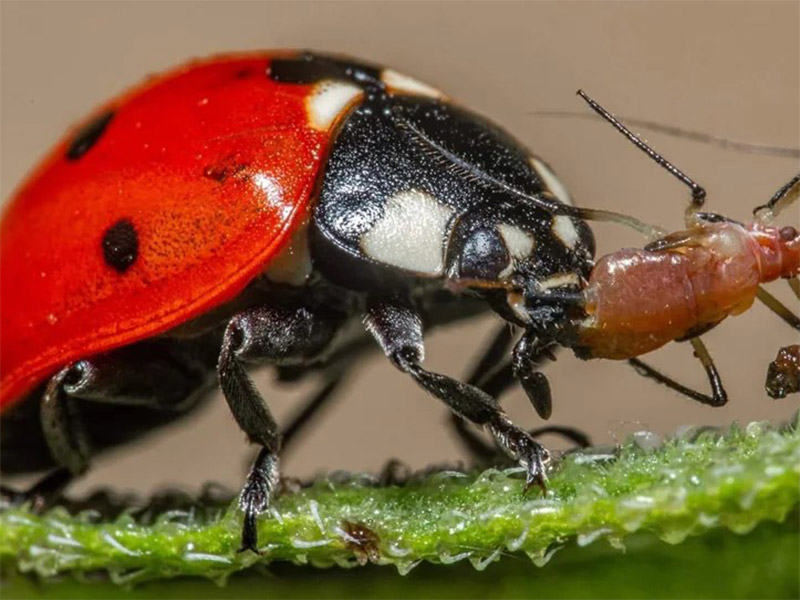
Ladybugs eating Aphids
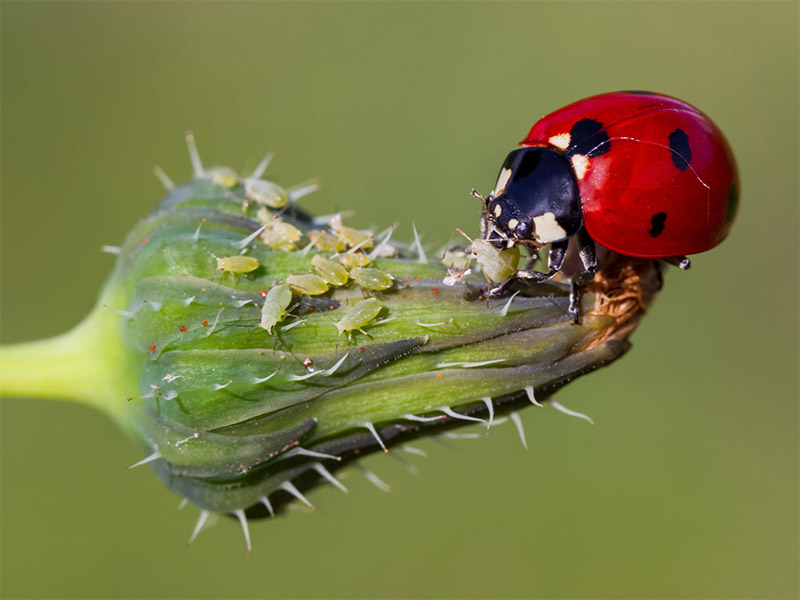
Ladybugs eating Aphids
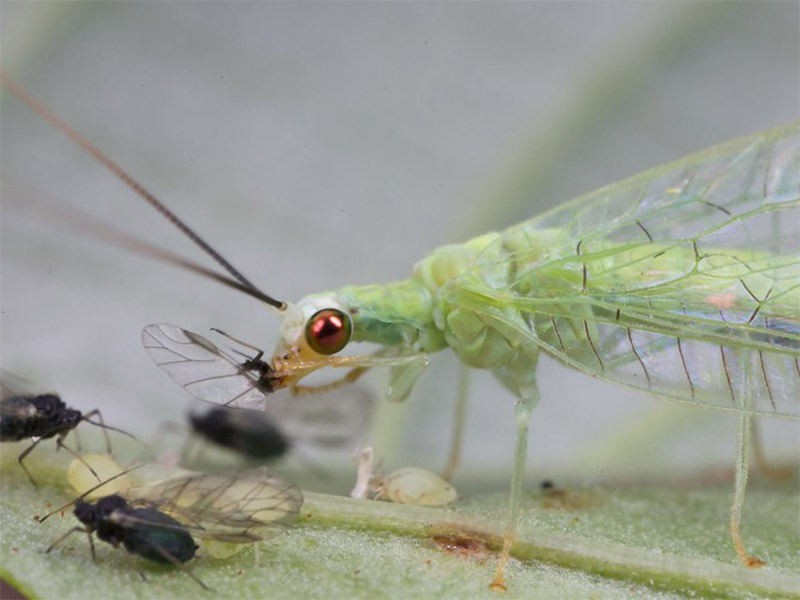
Lacewing eating Aphids
Parasitic Wasps- Natures Precision Weapons
Parasitic wasps, although often misunderstood due to their intimidating reputation, play a crucial role in biological pest control. These tiny yet formidable insects lay their eggs inside or on the bodies of other insects, effectively using them as hosts for their offspring. Once the eggs hatch, the parasitic larva consumes the host, ultimately leading to its demise. In Florida, parasitic wasps target a wide range of pests, including caterpillars, beetles and flies.
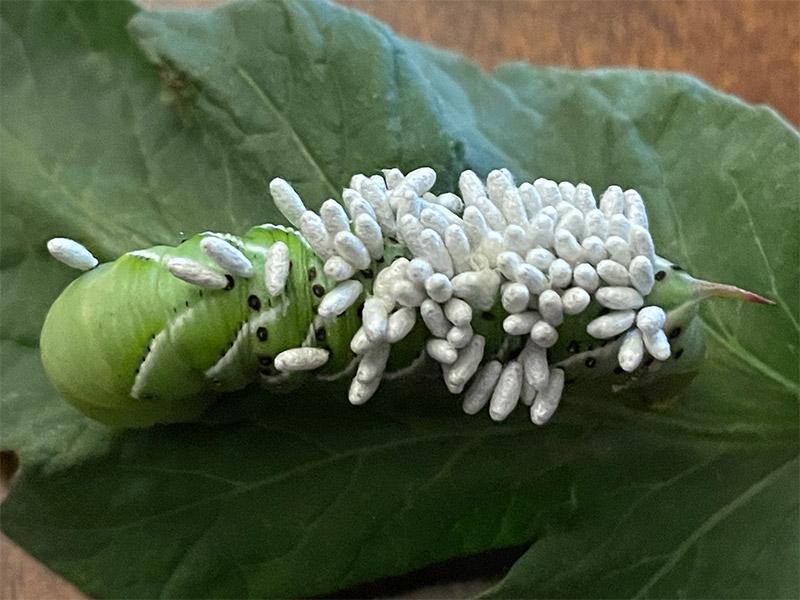
Predatory Wasp Eggs on Horn Worm
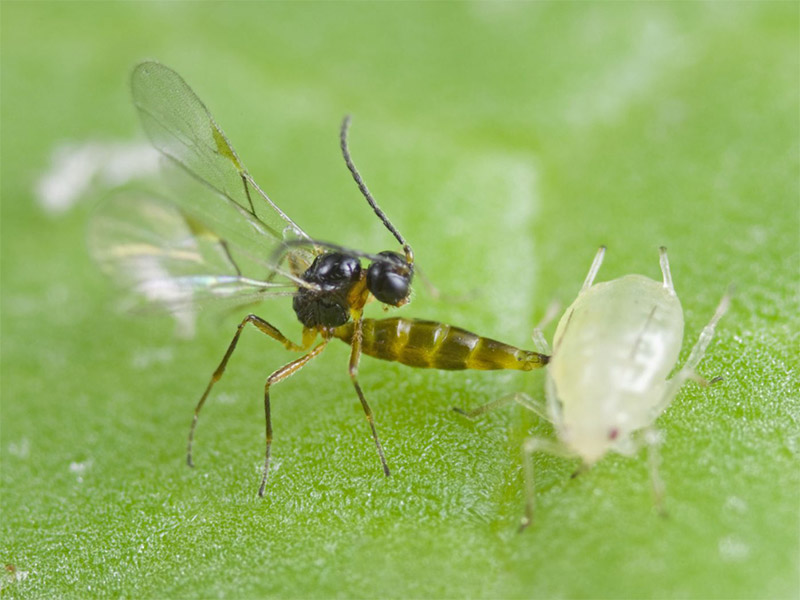
Predatory Wasp using an Aphid as a host
Despite their invaluable contributions, predatory insects and parasitoids face numerous threats in the landscape. Habitat loss and non-targeted pesticide use are the primary factors jeopardizing their populations. To address these challenges, the preservation of natural habitats and the implementation of Integrated Pest Control methods will promote a place for these essential insects. The continual education of the Green Industry along with the general public by promoting the importance of these beneficial insects is crucial for fostering a culture of coexistence and stewardship.
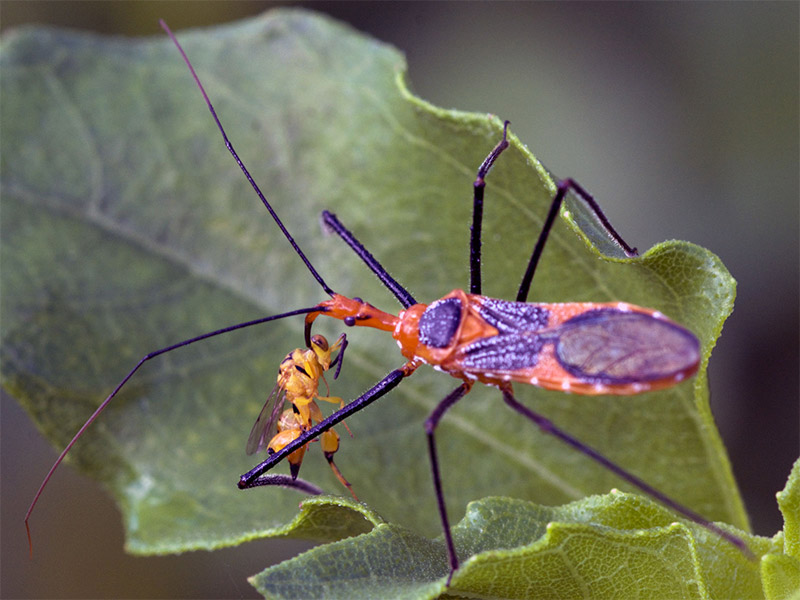
Assassin Bugs capturing prey
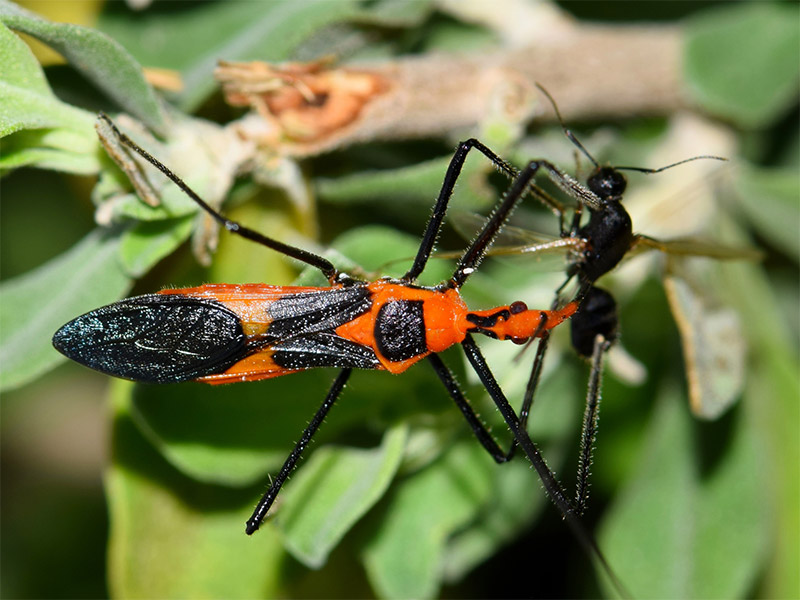
Assassin Bugs capturing prey
Predatory insects and parasitic wasps are indispensable allies in the intricate tapestry of Florida's ecosystems, playing a pivotal role in maintaining ecological balance and aiding the sustainability of our landscapes. Recognizing their importance and promoting measures to safeguard their populations, their success will be of benefit to all. As we continue to navigate the complexities of our coexistence, let us embrace the contributions of these tiny yet mighty defenders of our Florida landscapes.
